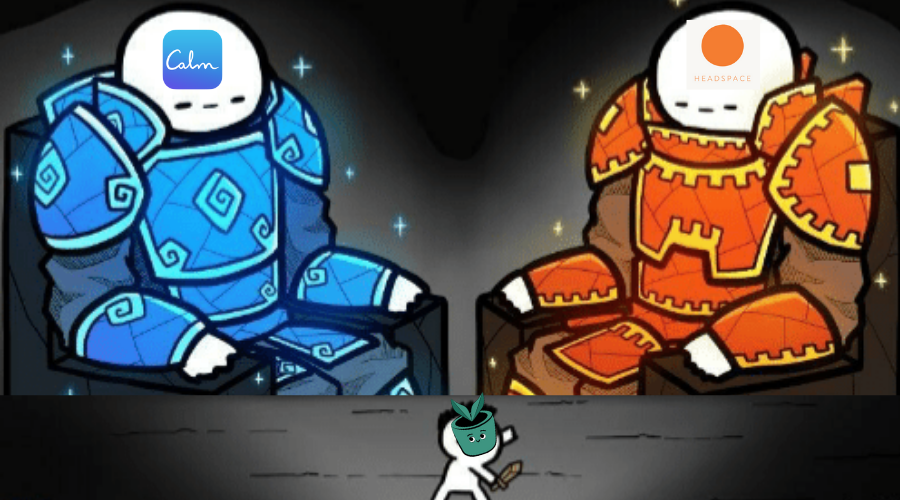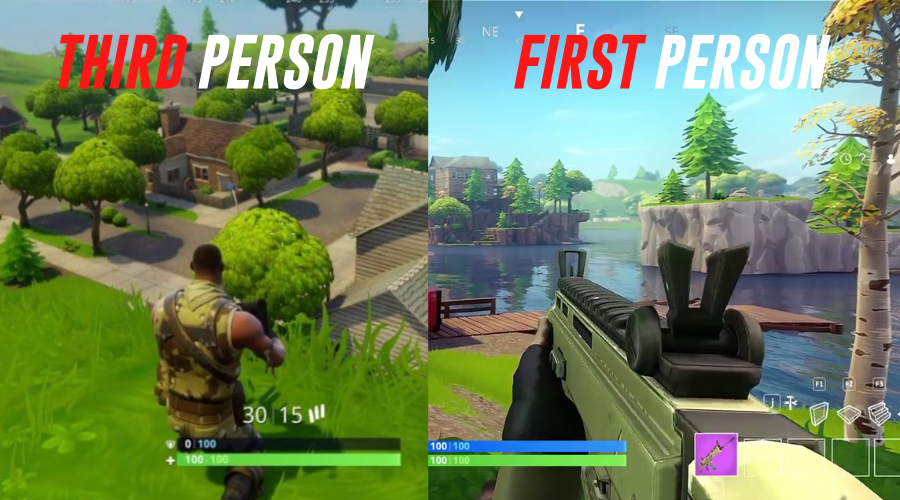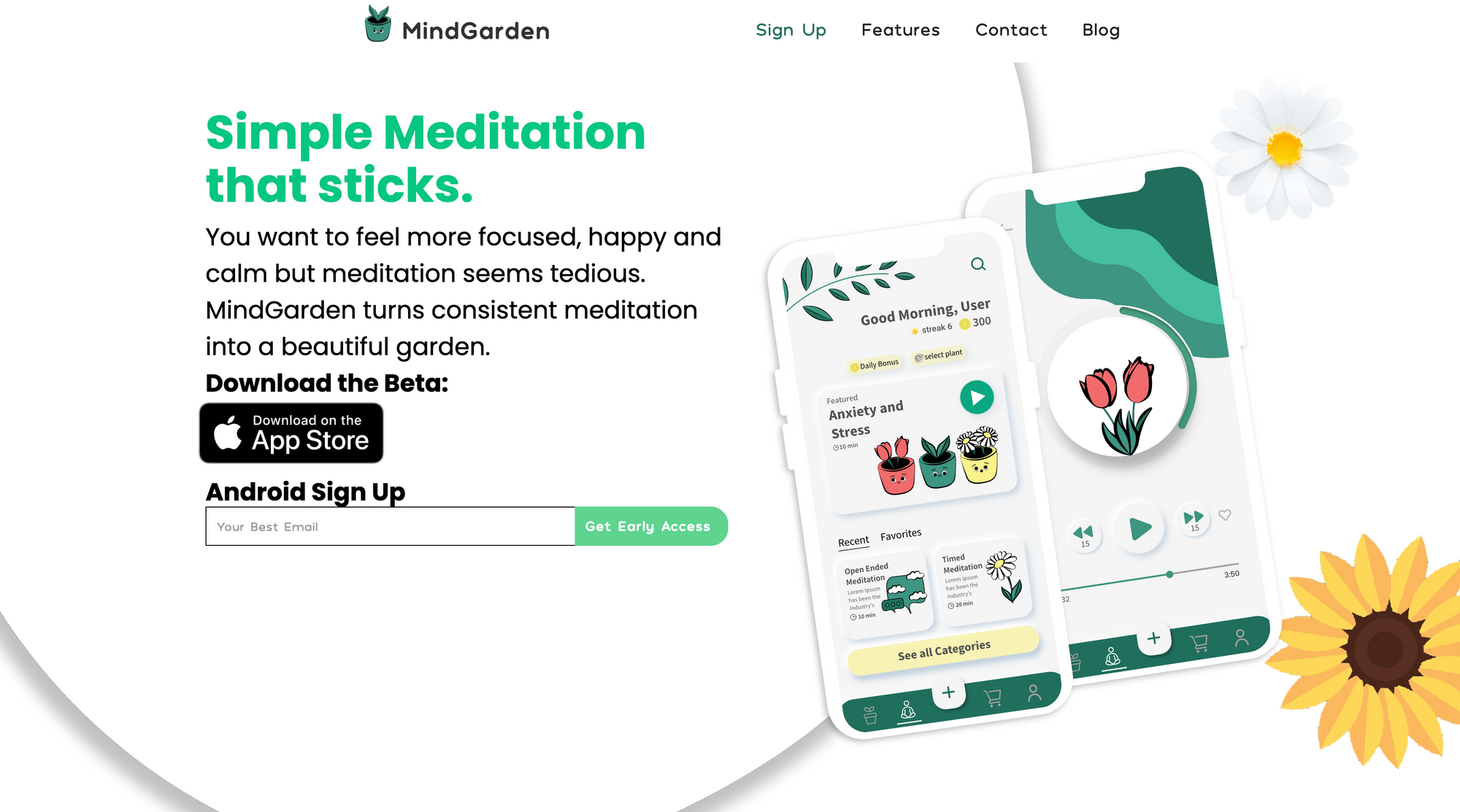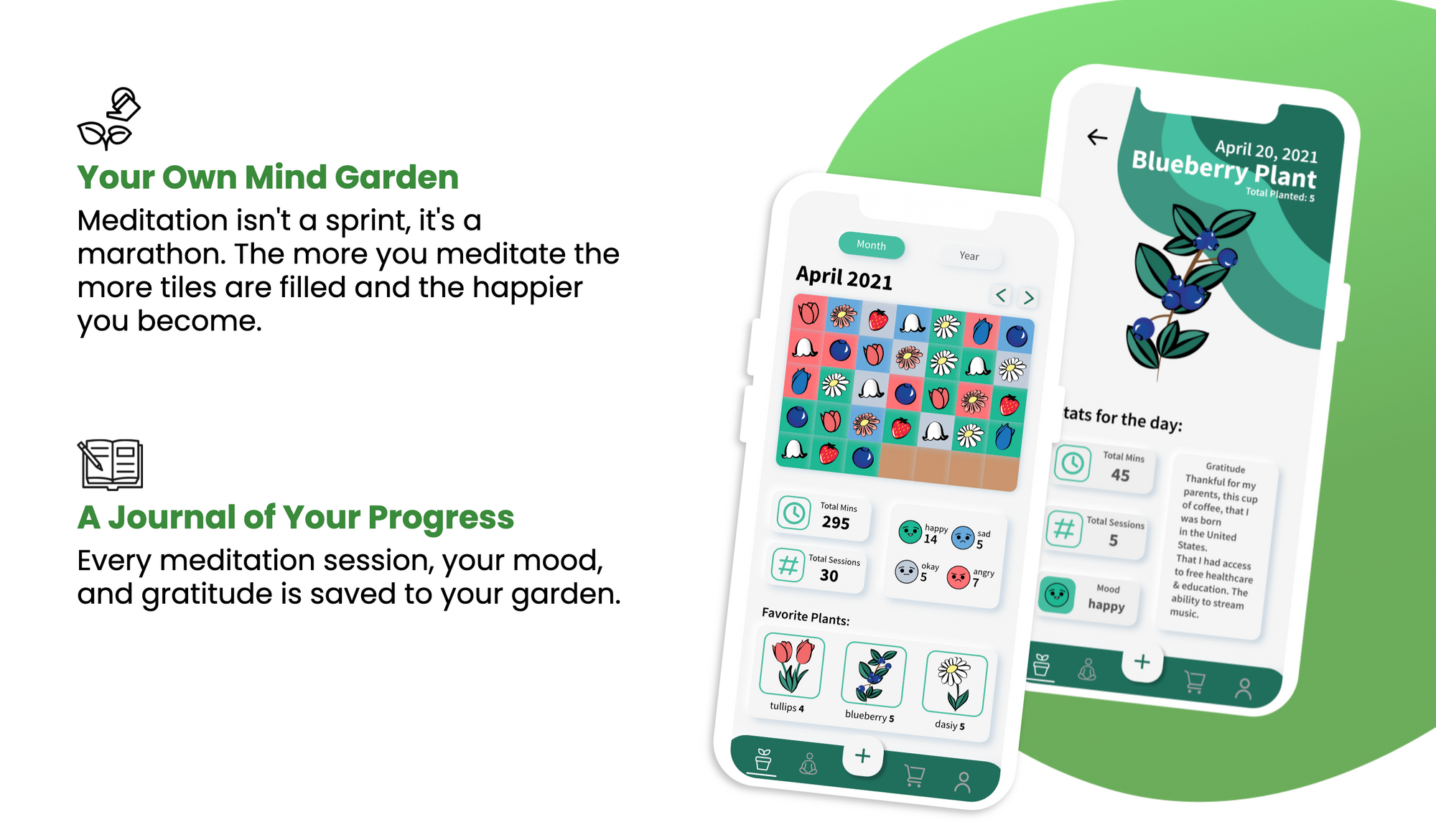How I'm Going to Compete With Calm & HeadSpace

I created and launched my meditation app, MindGarden, about two weeks ago. I’ve been meditating for over three years now and the practice has transformed my life. Due to mental health issues and desperation, I stuck with the practice for weeks even though I didn’t see any real results. But then something strange happened after about a month or so, I started to become more aware of my emotions. Whenever I began to feel sad, I usually thought: I’m sad and began to fall down a rabbit hole of hopeless thoughts. But after meditating I began to have thoughts such as: I’m experiencing sadness, this subtle but huge mental shift was all I needed to help me prevent my emotions from controlling how I lived.
You can compare it to going from first person to third person in a video game.

After this, I became an advocate for meditation trying to get all my friends & family to start the practice. Many did try, but after just a couple of days, almost all of them quit. There are thousands of studies that highlight the incredible benefits of meditation which include better sleep, increased focus and clarity, decreased levels of anxiety & stress, etc. The practice has been around for thousands of years, and is and has been practiced by millions of people, so why do people still fail to try and stick with meditation?
Headspace and Calm are both billion dollar companies that have Netflix shows, and people like Lebron James and Matthew McConaughey endorsing them, how could I possibly help the people they couldn't?
🎮 Gamification
I saw the solution to this problem after stumbling across this crazy article. It details how Ph.D. Scientists were struggling for 15 years to decipher a crystal structure for one of the AIDS-causing viruses called Mason-Pfizer. The University of Washington’s Center for Game Science partnered with these researchers and created a puzzle game called FoldIt that allowed players to figure out various protein structures. 240,000 players registered for the game, a solution to the Mason-Pfizer was found in 10 days, creating a major breakthrough in the AIDS research space.

Some people may argue it was simply the vast number of people who were trying to solve the problem that resulted in it being completed in 10 days. However I believe it has more to do with the fact that when a problem is approached with the mindset that it’s a fun game we work harder, faster and smarter.
You see examples of this all the time, and maybe even in your life. Kids are able to memorize hundreds of Pokemon, items, good and bad matchups, the geography of the game, but fail miserably when they have to memorize the periodic table.

👨🌾 How MindGarden Works
MindGarden isn’t simply just points and badges slapped onto a meditation app. Every time you enter a meditation session you are growing a beautiful plant, and at the end you get coins that you can then use to unlock different plants.

However, that’s not the main selling point of the app. MindGarden also doubles as a mood tracker and gratitude journal, which you would usually complete before or after a meditation. At the end of each month, you're able to see all your progress on the garden/calendar page, with the color of the tile representing your mood that day.

When you're working towards creating a beautiful garden instead of whether or not you're “feeling” the benefits of meditation you are way more likely to stick with meditation.
The app follows the philosophy of the score takes care of itself, or in other words, just focus on the process and the outcome will naturally happen.
📈 Marketing
The meditation space is highly competitive, especially in the paid advertising space. There’s no way I can outbid the budgets of two billion-dollar apps on Facebook, Google or Apple Search Ads. SEO also takes a ton of work and way too much time, and once again the meditation/mindfulness space is highly competitive when it comes to ranking for keywords. Creating blog posts, and Youtube videos are definitely things I will commit to once I begin getting traction and have a budget I can allot towards content creation.
Instead, I plan to create a Rolodex of micro-influencers on Tik-Tok either offer them a free lifetime subscription or pay them a small fee. I just need one small spark to get the buzz going, and the easiest and most cost-effective way would be creating a bunch of Tik-Toks and crossing my fingers that one of them goes viral. Response rates and deal-making rates are extremely low however, I reach out to 100 influencers and only get around a 10–15% rate, and then out of that only a handful will even come out to a deal. However, it’s the only real choice I have right now.

I also plan on reaching out to a bunch of journalists in the mindfulness space to get them to try out the app, this will also be a long arduous process so if you know any you could refer me to please reach out to me on Twitter.
Lastly, I plan to engineer virality into my app, by offering users who get their friends to download the app using their link, 2 free weeks of MindGarden Pro which can stack infinitely. I’m placing a big bet on word of mouth, but I believe MindGarden is unique and valuable enough to the point that it will be brought up during conversations relatively often.
🔮 Looking Ahead
There are still so many features I want to add to the app like a learn page, where I provide articles and videos on mindfulness and best practices. I also want to add a feature where you can add friends, and see each other’s gardens (or private them if you want) to keep each accountable. A leaderboard would also be kind of cool. Web apps, chrome extensions, widgets and watch apps are also all on the roadmap. However, I need to validate and monetize the app before I can really go all-in on it. The potential for this app is truly limitless, and I would be pretty sad if MindGarden didn’t get the attention it deserves, which is why I’m going all-in on marketing and user acquisition right now.

🌱 Conclusion
I know I’m making tons of assumptions and honestly, I’ll probably fall flat on my face soon. But I truly believe this product can make a positive difference in many people’s lives, and really highlight the power of both meditation and gamification. That being said if you could share the article or app with a friend, you would be doing MindGarden and I a huge favor!
Feel free to reach out to me on Twitter or email, I’m always open to talk. Thanks for reading and let’s stay positive and test negative.